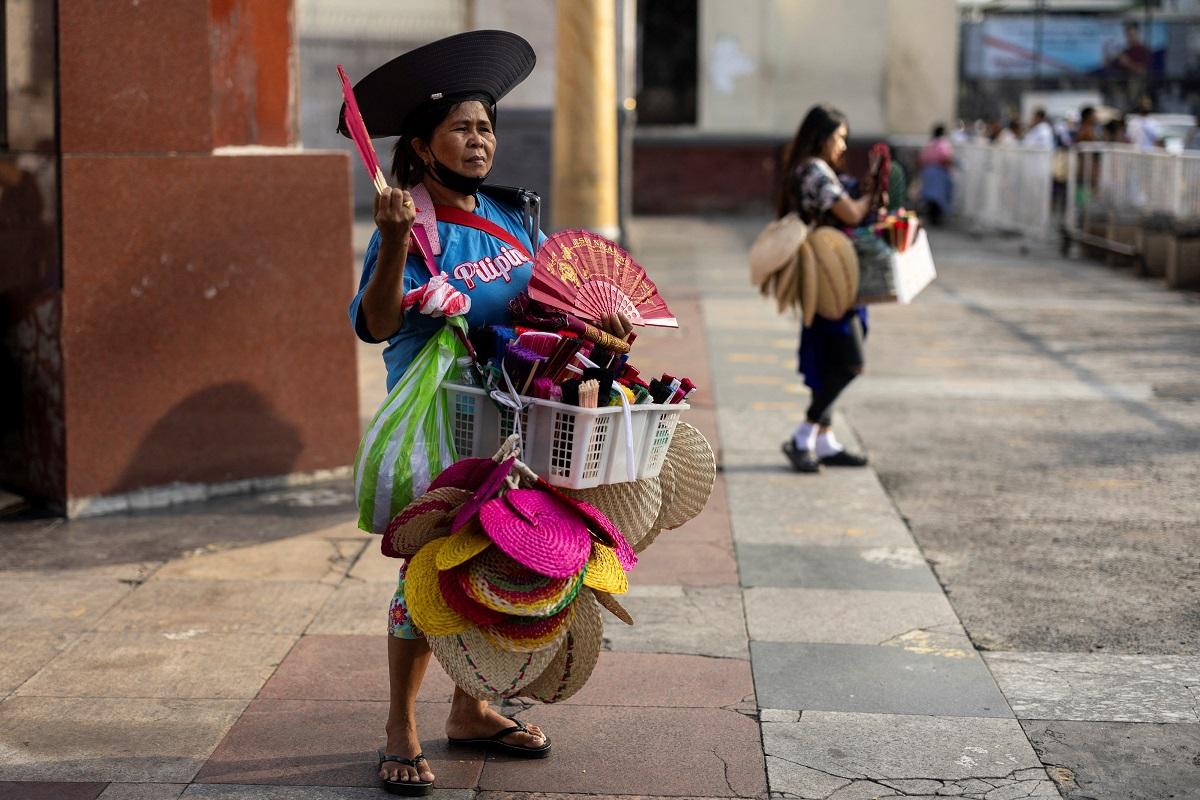Dangerous heat index expected in 28 areas on Monday

Heat index in 28 areas in the country may reach “danger level” on Monday, according to state weather bureau PAGASA.
In its forecast as of 5 p.m. on Sunday, PAGASA said the following areas may feel heat index of up to 46°C:
46°C
- Guiuan, Eastern Samar
45°C
- Borongan, Eastern Samar
- Zamboanga City, Zamboanga Del Sur
44°C
- Laoag City, Ilocos Norte
- Catarman, Northern Samar
- Catbalogan, Samar
- Tacloban City, Leyte
- Maasin, Southern Leyte
- Laguindingan Airport, Misamis Oriental
- Surigao City, Surigao Del Norte
- Butuan City, Agusan Del Norte
43°C
- MMSU, Batac, Ilocos Norte
- Tuguegarao City, Cagayan
- Puerto Princesa City, Palawan
- Virac (Synop), Catanduanes
- Dumaguete City, Negros Oriental
- Panglao International Airport, Bohol
- Siquijor, Siquijor
42°C
- Sinait, Ilocos Sur
- Dagupan City, Pangasinan
- Bacnotan, La Union
- Aparri, Cagayan
- Cuyo, Palawan
- Masbate City, Masbate
- Mactan International Airport, Cebu
- Dipolog, Zamboanga Del Norte
- Davao City, Davao Del Sur
- Cotabato City, Maguindanao
According to PAGASA, heat index is the measure of the temperature that a person feels, which is different from the actual air temperature. It is computed by factoring in the humidity and the air temperature.
Heat cramps and heat exhaustion are likely in areas experiencing a danger level heat index, which is from 42 to 51°C. Heat stroke is also possible with continued exposure.
The highest recorded heat index reported in the country was 55°C in Guiuan, Eastern Samar on Sunday. In Metro Manila, the highest recorded heat index was 46°C in NAIA, Pasay City on April 24.
On May 4, the Department of Health (DOH) said 77 cases of heat-related illnesses were reported so far this year, including those who may have died due to the hot weather. Around 87% or 67 of these cases were aged 12 to 21 years old.
Of the 77 total cases, seven were "reported deaths" although these were "non-conclusive for heat stroke" due to insufficient data.
The DOH said these deaths may be heat-related illnesses, including heat stroke, or heat-influenced, such as underlying high risk for heart attack, precipitated by hot environment that led to elevated blood pressure.
If anyone is experiencing heat stroke symptoms, the Department of Health (DOH) advised the following first aid measures:
- Move the person to a shaded, cool area, and provide ventilation.
- Remove the person’s outer clothing.
- Apply cold compresses, ice packs, cold water, or cold wet cloth against the skin, especially on the head, face, neck, armpits, wrists, ankles, and groin. If the patient is conscious, encourage frequent slow sips of cool water.
- Contact emergency services or bring the person to the hospital immediately.
To prevent heat-related illnesses, PAGASA advised the public to limit time spent outdoors, drink plenty of water, and avoid tea, coffee, soda, as well as liquor.
People should also use umbrellas, hats, and sleeved clothing outdoors and schedule their heavy-duty activities for the beginning or end of the day when it is cooler.
PAGASA on March 22 declared the start of the warm and dry season in the country and the start of the El Niño phenomenon on July 4 last year.
Since 2023, the United Nations has warned the public of “global boiling.”
“The era of global warming has ended, the era of global boiling has arrived,” UN Secretary-General António Guterres said in June 2023. —KBK, GMA Integrated News




